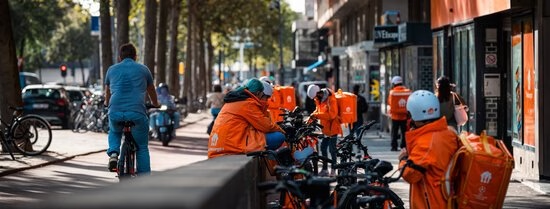You don’t see them, yet they are present in your life every day: ghost workers. These are people who conduct small online tasks to make raw data suitable to train AI systems, for example for your search engine or your virtual assistant. Tasks could be classifying images or cleaning data. This online workforce is invisible, but professor Claartje ter Hoeven is trying to change this with her research.
Ghost workers have poor working conditions
Ghost workers work through online platforms where they can sign up for small online tasks. They often do not see for which company they are working. The appeal of this work is that you can set your own hours and work from home. But labour relations are completely skewed.
Ghost workers Ivan, Michaela and Maria talk about their working conditions. 'I have no supervisor or manager,' Maria says. Ivan adds: 'If you don't meet their standards, you can be fired just like that.'
Making ghost workers visible
Claartje ter Hoeven makes ghost workers, their working conditions and its impact on their well-being, visible in her five-year study. 'They are not under contract anywhere and they earn a few hundred euros a month with this, and that is a high estimate.'
Worse, ghost workers sometimes don’t get paid without notice or are removed from a platform, without any explanation. This also happened to Michaela. Watch her story and that of the others in this video:

- Professor
- More information
- Related content

